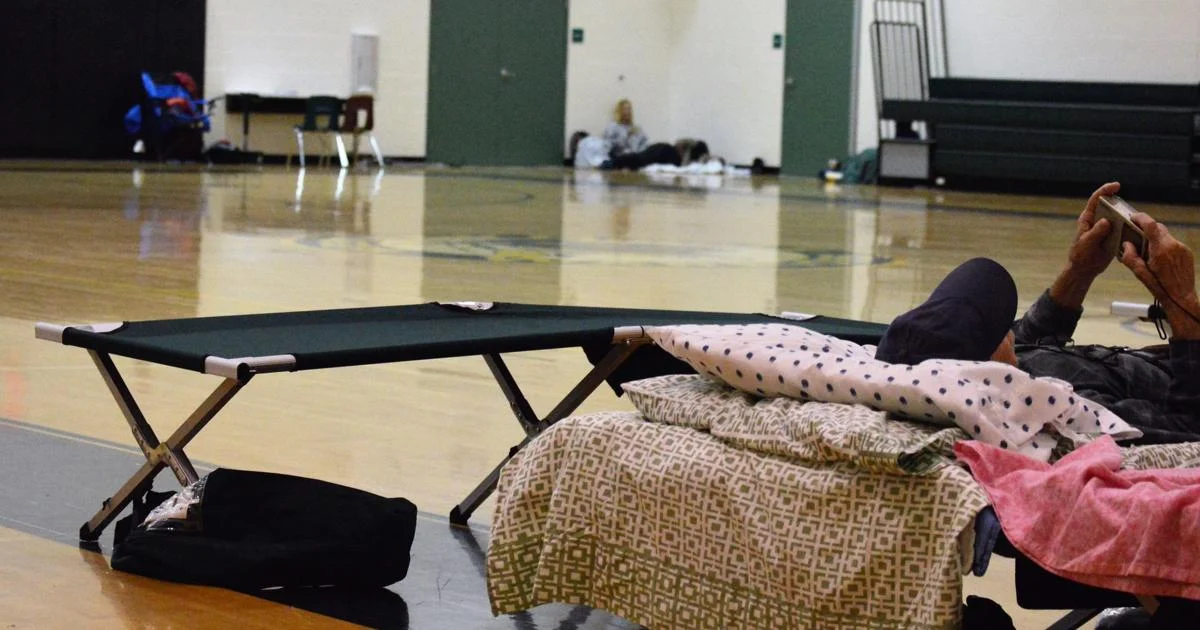
When a storm is heading for the coast, residents need to think about how to keep themselves and their families safe. That could mean hunkering down at home, finding a shelter or evacuating. If they stay, they’ll need to brace for power outages and make sure their pantry is stocked with enough water and shelf-stable food. If they go, they’ll need to decide where. Routines will be upended for days, which can be disorienting for anyone — especially for those with dementia.
Dementia is an umbrella term for the symptom of cognitive loss that is severe enough to impact daily life. It can include memory loss, reduced motor functions and language difficulties. People with dementia often find comfort in structure and routine. Routines that are disrupted can lead to increased confusion, wandering and agitation.
Having a plan for weather-related emergencies can help caregivers reduce some of these stressors, said Beth Sulkowski, vice president of communications at the South Carolina chapter of the Alzheimer’s Association.
Creating a packing list ahead of storms can help caregivers save time by taking out the guesswork about what they’ll need and making sure nothing is forgotten, said Rob McMahon, chief nurse practitioner for brain health at the University of South Carolina and assistant clinical professor at the USC School of Medicine in Columbia.
Some of these essentials include:
Medication
Medical documents and doctor contact information
Legal documents (e.g., power of attorney, health care power of attorney, living will)
Identification (e.g., passport, ID bracelet, birth certificate)
Weather appropriate outfits that are easy to change
Personal hygiene items
Comfort items (e.g., a special blanket, pillow or stuffed animal)
Food, water and favorite snacks
A recent photograph in case you get separated
Supplies for service animal or pet
In these situations, McMahon recommends packing medication in original bottles with information about dosage, the doctor who prescribed it and refills.
“Take your medications in the bottles that they come in and store all of that in a plastic bag so that it’s waterproof,” he said.
If an evacuation order is issued, know ahead of time where you’ll go and leave as early as possible, McMahon said.
“If you’re planning to evacuate, try to evacuate to a friend or family member’s house or a hotel room rather than a shelter, if that is an option,” Sulkowski said. “There’s not a lot of privacy in a shelter, and the noise and distractions can be overstimulating for someone with Alzheimer’s or another type of dementia.”
Although some shelters may allow service animals and pets, some will not, McMahon said. Check the shelter’s policy ahead of time, he added.
At the shelter, McMahon and Sulkowski recommend finding a quiet corner or room and keeping the environment around the person with dementia as calm as possible. Discreetly alerting staff at the hotel or shelter that someone in your group has dementia is also a good idea, Sulkowski said.
“Try as we might, it can be really difficult to have your eyes open and aware 24 hours a day,” Sulkowski said.
Remember to communicate plans with relatives. Let them know where you go, when you arrive and that you’re safe once the storm passes, McMahon said.
“Don’t leave them wondering what’s going on,” he said.
Staying calm
Communicating evacuation plans with someone with dementia requires patience and reassurance that even though they’ll be in a new place, they’ll stay safe. It’s common for people with dementia to say “I want to go home,” which can be a sign they feel upset, uncomfortable or unsafe, Sulkowski said.
But “home” is a feeling as much as anything, she said.
“Obviously, it’s a stressful situation, but oftentimes the things that a person with dementia will respond the most to are emotional cues that are not necessarily verbal, so try to be their safe place and provide reassurance, such as ‘you’re safe here’ and ‘we’re going to get through this together.’”
Caregivers likely will need to repeat reassuring phrases, McMahon said.
Giving the person with dementia enough time to respond can help them stay calm.
“When we are stressed, we will often rush and fill in pauses in the conversation, or hurry someone along, but you want to make sure that they have time to say what they need to say, and sometimes it can take a few minutes to gather their thoughts,” Sulkowski said.
Caregiving can be overwhelming and take an emotional toll on those navigating new relationship dynamics and watching their loved one’s cognitive decline in real time. They aren’t alone, McMahon said.
“Organizations such as the Alzheimer’s Association and South Carolina Emergency Management Division all have information on what to do in case of an emergency, and particularly with a person with dementia or a loved one with special needs,” McMahon said.
The Alzheimer’s Association offers free, recorded workshops on how to communicate with someone with dementia and caregiving at different stages, which can help during weather events.
One of the best ways to get started with the Alzheimer’s Association is through a free, 24/7 helpline, she added. The helpline’s number is 800-272-3900.
“As caregivers and care partners, the way that we approach the situation and our loved one can make all the difference for everyone’s experiences,” Sulkowski said.



